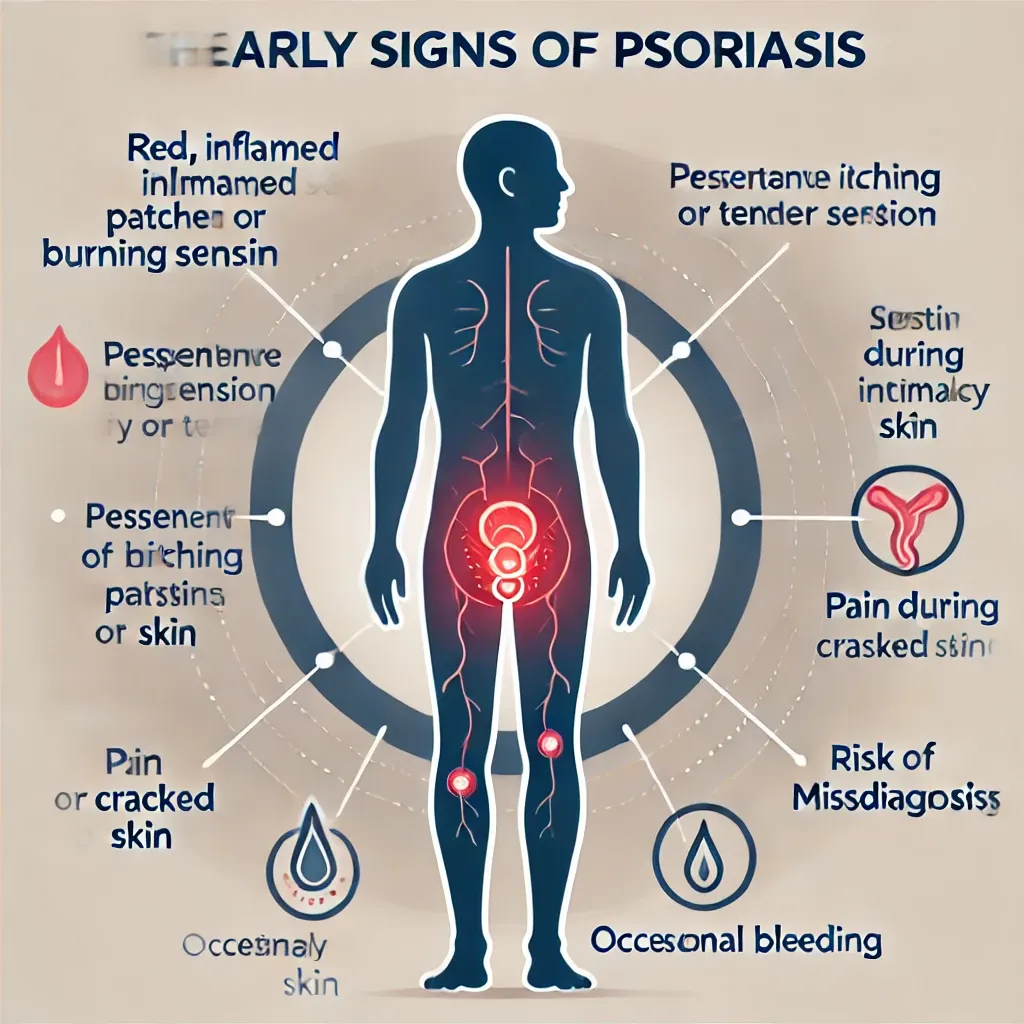Early Signs of Genital Psoriasis You Need to Write Down
Psoriasis is a chronic autoimmune condition that affects the skin. While often seen on the elbows, knees, or scalp, genital psoriasis is less discussed. Recognizing its early signs can help ensure timely treatment and avoid discomfort. Here are the key symptoms to document if you suspect genital psoriasis.

1. Red, Inflamed Patches of Skin
One of the hallmark symptoms of genital psoriasis is the appearance of red or pink patches of inflamed skin. These patches may be smooth rather than scaly, as is typical in other forms of psoriasis, due to the moist environment of the genital area. The redness can vary in intensity, and the affected area may feel warm to the touch.
2. Persistent Itching or Burning Sensation
Itching is a common symptom of genital psoriasis and can range from mild to severe. In some cases, individuals may also experience a burning sensation, especially during physical activity or after contact with irritating substances such as certain soaps or laundry detergents.
3. Sensitive or Tender Skin
The skin in the genital area affected by psoriasis may become more sensitive and tender. Activities such as wearing tight clothing, exercising, or even sitting for prolonged periods can exacerbate the discomfort.
4. Dry or Cracked Skin
Although less common in the genital form of psoriasis, some individuals may notice areas of dry or cracked skin. This can increase the risk of secondary infections, making it crucial to address the issue promptly.
5. Pain or Discomfort During Intimacy
Psoriasis in the genital area can cause pain or discomfort during sexual activity. This can lead to emotional stress or strain on relationships, making open communication with a partner and healthcare provider essential.
6. Occasional Bleeding
In severe cases, the skin may crack or become so irritated that it bleeds. This is often a sign that the condition requires immediate medical attention and potentially a change in treatment approach.
7. Misdiagnosis as Another Condition
Genital psoriasis can sometimes be mistaken for other conditions, such as a fungal infection, contact dermatitis, or a sexually transmitted infection (STI). It is important to consult a dermatologist for an accurate diagnosis, as the treatment for psoriasis differs significantly from that of other conditions.
What to Do if You Notice These Symptoms
If you recognize any of these early signs of genital psoriasis, it’s important to:
- Keep a Symptom Journal: Document the frequency, severity, and triggers of your symptoms. This can help your doctor make a more accurate diagnosis.
- Avoid Irritants: Switch to hypoallergenic products and wear loose-fitting clothing to minimize irritation.
- Consult a Specialist: Seek medical advice from a dermatologist or healthcare provider experienced in treating psoriasis. They can recommend topical treatments, lifestyle changes, or systemic therapies tailored to your needs.


